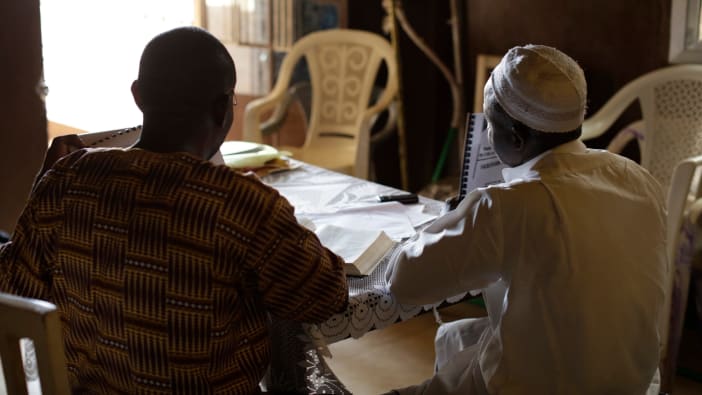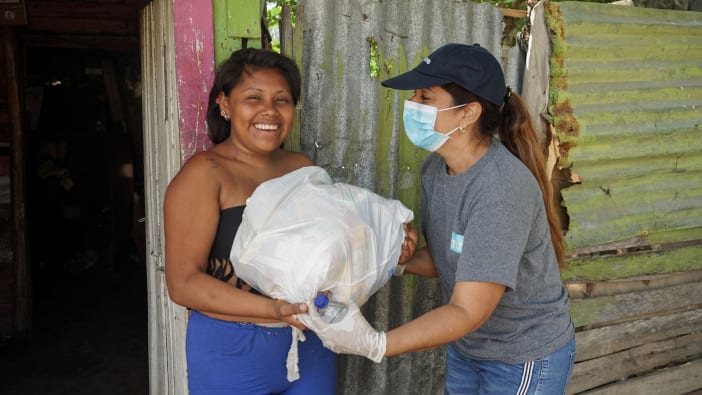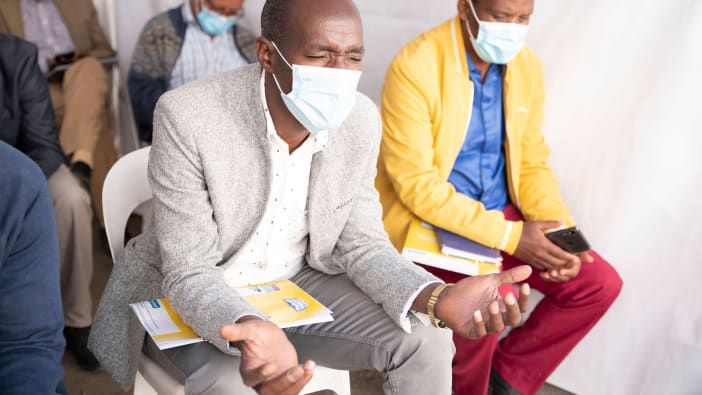In some countries in sub-Saharan Africa, one out of ten adults is already living with HIV. This means that in most churches in these countries, there will be some people who have the virus.
This is not just a problem for Africa, because the AIDS pandemic affects the whole world. The people who are infected with the virus and those who have died of AIDS are not simply strangers, but members of our global family. The most important challenge now is to save lives.
Judgmental attitudes, which see HIV as a punishment for sin and immorality, have contributed to creating another epidemic – of stigma and discrimination. HIV is a virus that can affect anyone, it is not a moral judgment. Many children are infected with HIV at birth, through mother- to-child transmission. Many new infections are in young, faithful wives. Yet the stigma remains and prevents people from seeking help, testing or treatment. Church leaders have a position of influence in the community, so can help to change these judgmental attitudes. We have a chance to speak out against stigma, to try to save lives and to give people hope.
ANERELA+ is the African Network of Religious Leaders Living with or personally affected by HIV and AIDS. We seek to equip, empower and engage HIV-positive religious leaders to deal with the issues of stigma and discrimination, irrational fear, denial and shame which help to spread the virus. To confront stigma, these leaders break the silence in the church by sharing their personal story and life experience. They speak about their HIV-positive status freely and frankly and act as models of a positive life. They show that where there is support, understanding and access to medical care, such as antiretroviral drugs, HIV does not prevent a person from living life to the full.
Revd Ayano Chule Deyabo is an Anglican clergyman and a member of ANERELA+
ANERELA+
5th Floor JCC House
27 Owl Street
Milpark
Johannesburg, 2006
South Africa
Email: [email protected]
Website: www.anerela.org
Discussion questions
Read Luke 10:25-37
In this story try placing yourself honestly as one of the characters:
- Are you like the Samaritan? Who could be like the Samaritan in your church or workplace?
- What about the man who was attacked? The priest? The robbers?
- Was it the man’s fault that he was attacked? Could he have avoided it?
- What is God doing if the person who is suffering is innocent?
SAVE
Many HIV prevention programmes follow the ABC approach (Abstinence, Be faithful, use Condoms). However, this message does not fully address all the complex realities of life. Many people, particularly women, have little control over sexual decisions. ANERELA+ has developed a new model for a more complete HIV response, called SAVE.
S - Safer practices to prevent transmission of the virus. These include safe blood for blood transfusion; condoms for sexual intercourse, clean needles for injections. SAVE does not mean abandoning the idea of abstinence, but that cannot be the only message.
A - Available medications. This includes providing antiretroviral (ARV) drugs, as well as treating HIV-associated infections.
V - Voluntary counselling and testing (VCT). People who know their HIV status are better able to protect themselves from infection. Someone who is HIV-positive can be provided with information and support to enable them to live positively.
E - Empowerment through education. Sharing correct, non-judgmental information can break down barriers of stigma and discrimination. Education includes information on good health and nutrition for people living with HIV.









